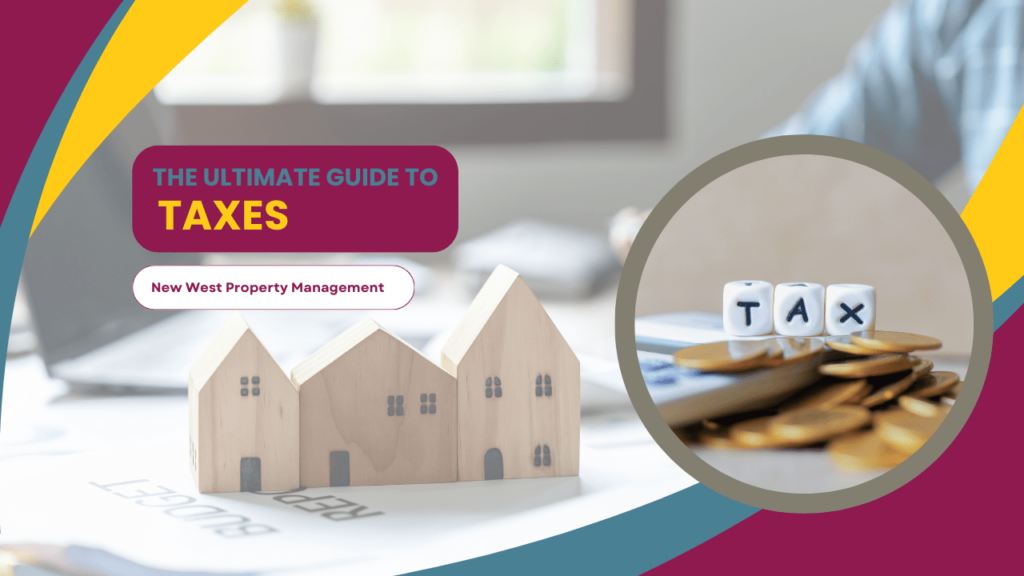
Investing in Las Vegas real estate comes with a set of tax implications that investors need to understand in order to protect their earnings and enjoy a lucrative investment experience. There are property taxes in Clark County, and that tax rate is relatively low compared to the national average. This is just one excellent reason to invest in Las Vegas rental properties.
Whether you’re a local investor or buying properties from elsewhere in the country, it’s crucial to understand how Nevada deals with taxes and what you’ll have to provide when filing your federal income taxes. Nevada does not have a state income tax, for example, which can make the state an attractive option for investors looking to maximize their returns and keep more of their money.
Another important consideration is the capital gains tax. If you sell a property after owning it for more than a year, you may be subject to long-term capital gains tax, which could be lower than ordinary income tax rates. With home values rising and higher profits likely, those capital gains taxes can be expected. But, it’s not all bad news when we’re talking about tax liability and how to manage it. Depreciation deductions can also play a vital role in minimizing taxable income. Investors can deduct the cost of wear and tear on the property, thereby reducing their overall tax liability.
Understanding these tax implications and leveraging tax benefits to their fullest requires careful planning and, often, the guidance of a tax professional. Being proactive about taxes can make the difference between a good investment and a great one.
We are approaching this topic today as Las Vegas property management professionals, not accountants. Make sure you’re working with a CPA or a tax attorney before you make any serious moves with your money or your taxes.
Property Tax in Nevada
Nevada has one of the lowest property tax rates in the United States, which means you’re smart to buy investment properties here. It’s an attractive option for real estate investors, not only because of the low property tax rate but also because there’s no state income tax. It’s important to understand how these taxes are calculated and what factors can influence your overall tax burden.
In Nevada, property taxes are based on a combination of the assessed value of the property and the local tax rate. The assessed value is determined by the county assessor and is typically a percentage of the property’s market value. The tax rate varies depending on the specific location within Las Vegas.
Several factors can influence property tax in Nevada:
- Location. Different neighborhoods within Las Vegas may have varying tax rates. Properties in Summerfield, for example, will carry different tax rates than rental homes in North Las Vegas.
- Property Type. Residential, commercial, and industrial properties may be taxed at different rates. Speaking strictly for residential properties, a high-rise condo overlooking the Las Vegas strip will be looking at a different tax rate than a single-family home in a gated community.
- Improvements and Renovations. Any improvements or renovations to the property can increase its assessed value, thereby increasing your tax burden.
Potential Tax Deductions When Investing in Las Vegas
When investing in Las Vegas real estate, being aware of potential tax deductions can significantly enhance your return on investment. Various expenses associated with property ownership and management are deductible, thus reducing your taxable income. Here are some common tax deductions available to real estate investors:
- Mortgage Interest
One of the most substantial deductions is the mortgage interest paid on a property loan. In different ways, you can deduct the interest paid on loans for acquiring, constructing, or improving your investment property.
- Property Taxes
The amount you pay in property taxes is also deductible. This can include any city, county, or state property tax levies assessed on your investment property.
- Operating Expenses
Operational expenses such as property management fees, maintenance, repairs, and advertising costs can be deducted from your rental income. These deductions apply even if you do not directly handle the operations but rather hire a property management company.
- Depreciation
Depreciation allows you to deduct the cost of the property over several years, not just the year you purchased it. This non-cash deduction can significantly reduce your taxable rental income even if your property’s value appreciates.
- Insurance Premiums
Premiums for insurance policies covering liability, fire, theft, and flood damage on your Las Vegas rental property are deductible. Additionally, any losses due to accidents or theft not covered by insurance can be claimed as a casualty loss deduction.
- Professional Fees
Expenses for professional services that help you manage your property more effectively, such as accounting, legal fees, and real estate commissions or consulting services, are deductible.
Understanding and leveraging these potential tax deductions can lead to significant savings for Las Vegas real estate investors, allowing you to optimize your investment returns and maintain a healthy financial outlook.
Strategies for Managing Real Estate Taxes
To optimize your investment in Las Vegas real estate, consider the following strategies:
- Research and Planning. Before making any investment, thoroughly research the local tax rates and assess how they will impact your overall return on investment.
- Consult with a Tax Professional. A tax professional can provide valuable insights and help you develop a tax strategy tailored to your specific needs.
- Take Advantage of Exemptions and Deductions. Nevada offers various exemptions and deductions that can help reduce your tax burden. Make sure to explore all available options with your tax professional.
Leveraging the 1031 Exchange
A 1031 Exchange, named after Section 1031 of the Internal Revenue Code, allows investors to defer paying capital gains taxes on an investment property when it is sold, as long as another “like-kind” property is purchased with the profit gained. This mechanism is designed to encourage reinvestment into similar types of properties, thus promoting economic growth.
There are several benefits to a 1031 Exchange for investors, and we always want to call this program to your attention when we’re talking about how to leverage your investments to save money on taxes.
- Tax Deferral
The most significant advantage of a 1031 Exchange is the deferral of capital gains taxes. By reinvesting the proceeds from the sale of one property into another, investors can defer paying taxes until they sell the new property without using a 1031 Exchange.
- Portfolio Diversification
A 1031 Exchange allows investors to diversify their real estate portfolio. For example, you can exchange a single-family rental property for a small apartment building, effectively spreading risk and potentially increasing returns.
- Increased Buying Power
Since you can defer paying capital gains taxes, you have more capital to invest in a new property. This increased buying power can be leveraged to acquire higher-value properties.
Wondering how to execute a 1031 Exchange? This is something we can help you with as your Las Vegas property management partner.
Step 1: Identify the Property to Sell
The first step is to identify the property in your portfolio that you want to sell. This property must be held for investment or business purposes to qualify for a 1031 Exchange.
Step 2: Find a Qualified Intermediary
You must use a Qualified Intermediary (QI) to facilitate the transaction. The QI will hold the proceeds from the sale and use them to purchase the new property, ensuring you never take possession of the funds.
Step 3: Identify Replacement Properties
Within 45 days of selling your original property, you must identify potential replacement properties. You can identify up to three properties regardless of their value or more than three properties if their combined value does not exceed 200% of the original property’s value.
Step 4: Complete the Exchange
Within 180 days of selling your original property, you must close on a replacement property from your identified list. The QI will use the proceeds from the initial sale to purchase the new property.
Key Considerations
- The term “like-kind” can be misleading. In a 1031 Exchange, it refers to the nature of the investment rather than the exact type of property. For example, you can exchange a rental house for an office building since both are investment properties.
- Strict timelines govern the 1031 Exchange process. Missing deadlines can result in losing the tax deferral benefit, so adhering to the 45-day identification period and the 180-day closing period is critical.
- Choosing a reputable and experienced Qualified Intermediary is vital. The QI plays a crucial role in ensuring compliance with 1031 Exchange regulations and timelines.
Investing in Las Vegas real estate is an excellent idea, but we always encourage investors to understand what it means for their taxes. Be informed. Surround yourself with professionals. Be careful to document all of the income and expenses involved with your rental property so you can protect yourself against a potential audit.
 We’d be happy to help you understand where your greatest tax exposure may be and how you can minimize that tax liability. Please contact us when you’re ready to talk about taxes or property management. Our team at New West Property Management expertly manages residential rental homes in Las Vegas and throughout Clark County, including Henderson and North Las Vegas.
We’d be happy to help you understand where your greatest tax exposure may be and how you can minimize that tax liability. Please contact us when you’re ready to talk about taxes or property management. Our team at New West Property Management expertly manages residential rental homes in Las Vegas and throughout Clark County, including Henderson and North Las Vegas.
